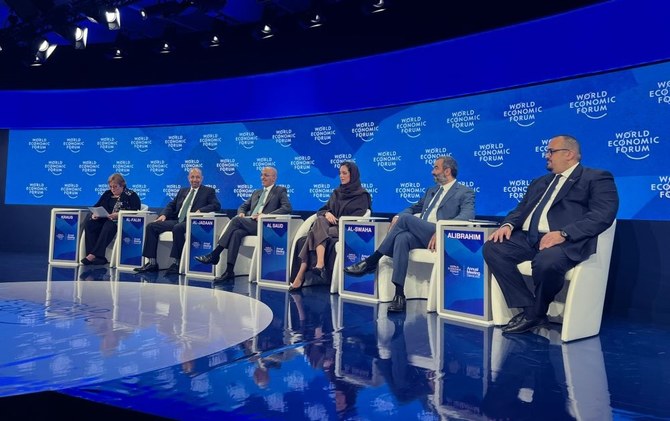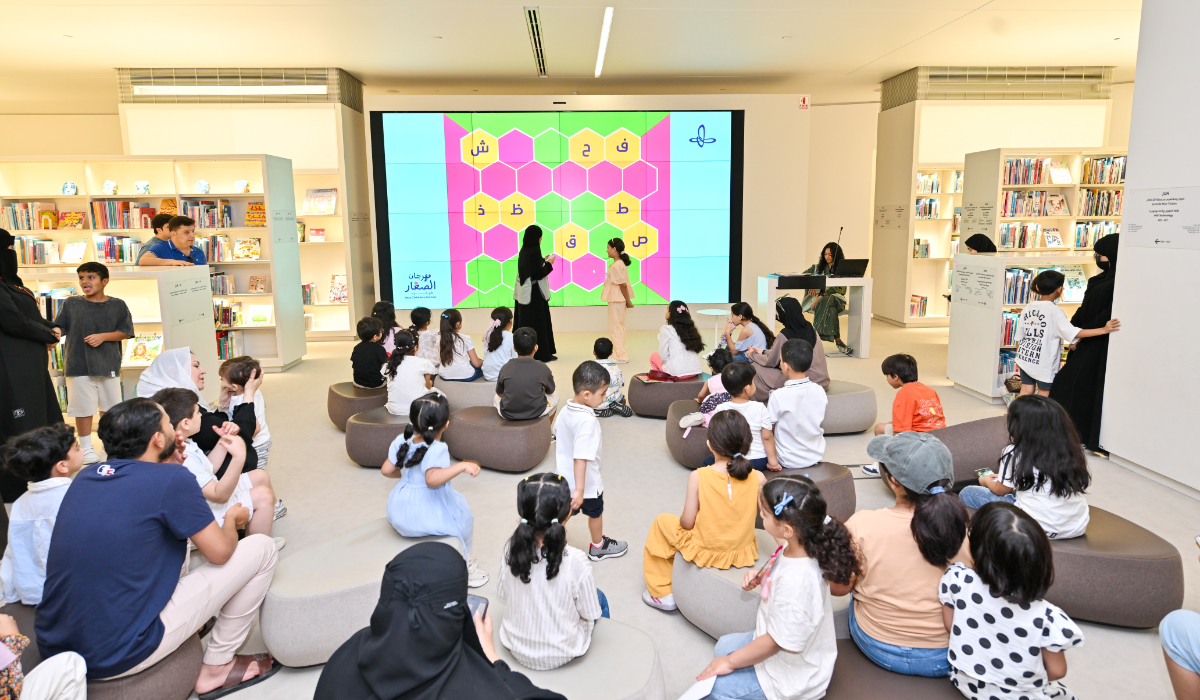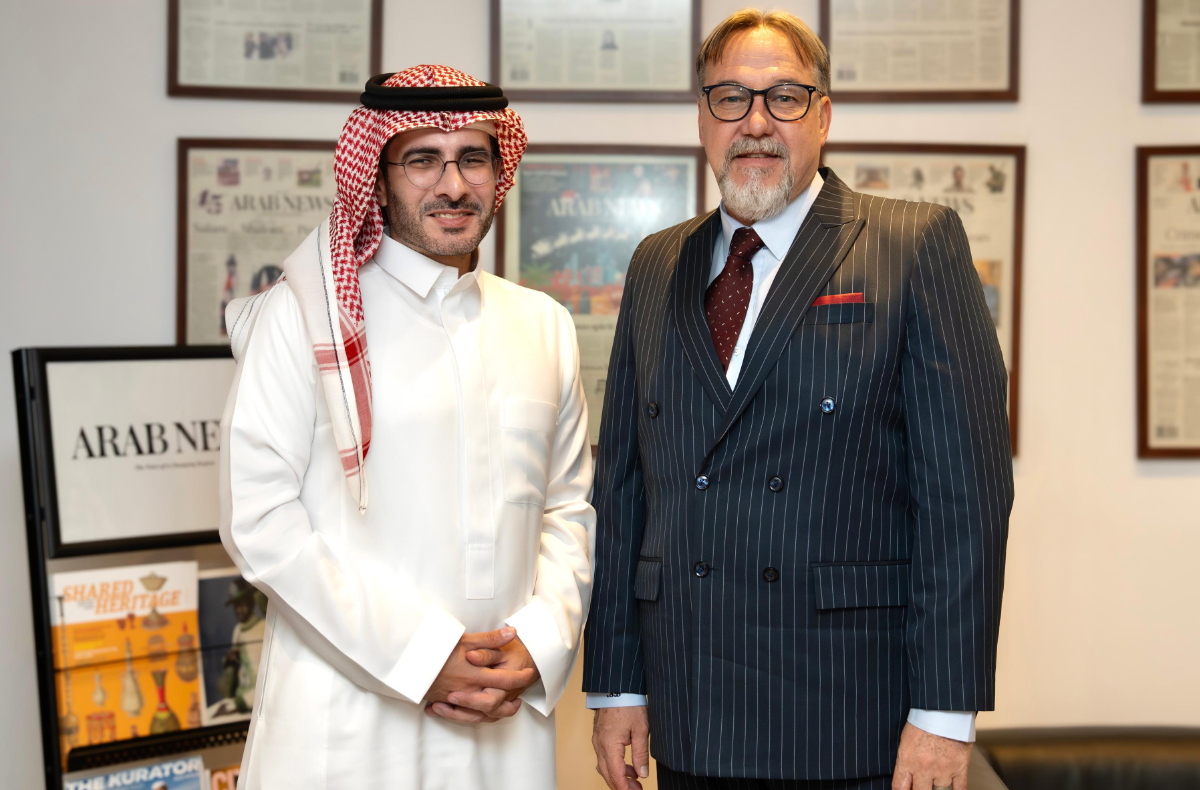DAVOS: Saudi Arabia will continue to invest in new sectors and diversify its economy to achieve sustainable growth, ministers from the Kingdom told the World Economic Forum (WEF) on Wednesday.
In the latest WEF Travel and Tourism Development Index (TTDI) published on Tuesday, Saudi Arabia ranked 34 among more than 100 countries for development, sustainability and resiliency in industry — a 10-mark jump from pre-pandemic levels.
Speaking at the Saudi Arabia Outlook session in Davos, Princess Haifa bin Mohammed, assistant minister of the Tourism Ministry, said that the Kingdom’s industry “didn’t just recover, but actually increased.”
She added: “We managed to amend the regulations and policies. We are now among the top 10 countries in the environment of business, travel and tourism.”
The Kingdom’s TTDI score improved in three main sections since 2019: The business environment with an 11 percent rise, tourism demand pressure and impact with an 8 percent rise, and the human resource and labor market with a 7.3 percent rise.
Princess Haifa attributed the growth to the government placing travel and tourism at the center of its recovery plans. Support was quickly provided to ensure that the industry’s development stayed on track, she said.
“The prioritization of the travel and tourism industry from the government perspective is why we managed to do so well during the pandemic and recover. We quickly gave support to accommodations, we protected the jobs in that sector and we focused on training as well. We managed to train 110,000 people last year alone, which is all contributing to the way we are moving forward,” she added.
Minister of Economy and Planning Faisal Al-Ibrahim said that the Kingdom will continue to “make access to talent easy in this upward journey of our economic and social growth.”
Bridging the digital divide and harnessing local talent has been at the core Saudi Arabia’s Vision 2030 reform plan, Minister of Communications and Information Technology Abdullah Al-Swaha told the WEF session.
In line with the reform plan — put forth by Crown Prince Mohammed bin Salman — the Kingdom has made significant strides in its goal of diversifying the economy. In 2019, the Kingdom announced that it would open its doors to tourists, and has since introduced protocols to ease travel regulations.
“This has been the thesis for Vision 2030: How we can leverage talent and technology to improve inclusion, sustainability and growth. And on inclusion, we want to make sure that we close down the digital divide and make sure that there is equity in everything that we do,” Al-Swaha said.
As the Kingdom opened its doors to international travelers, it was also quick to reform laws on women’s empowerment and gender parity.
“We are very proud that we have jumped from 7 percent women’s empowerment in tech to more than 29 percent, which is higher than the EU average, the G20 average and even the US average. I just came back from Silicon Valley, where they said that they are at 27 percent.”
However, despite media reports that Saudi Arabia would allow NEOM to operate under its own set of laws and thus allow alcohol, the Kingdom has stayed adamant about changing its regulations to attract foreign tourists.
Princess Haifa said: “We are going to continue with our current laws. We have been doing very well and we have actually been outperforming globally when it comes to tourism with what we currently have to offer today. There is a lot to go around without introducing anything new.”
Khalid Al-Falih, Saudi minister of investment, said that the Saudi technology and tourism industries have been a driving force in attracting investors from around the world.
With the Saudi National Investment Strategy in effect, Al-Falih said that the plan is “leading us to diversify the economy by unlocking some of the new, exciting sectors that have so much potential and so much competitiveness.”
The strategy aims to boost net foreign direct investment flows to $103.46 billion annually by 2030, positioning the Kingdom as the 15th largest economy in the world.
According to the ministers, the progress in Saudi Arabia will also act as an accelerator for regional growth and inspire healthy competition — making the Kingdom and neighboring countries a hub for investment and travel.
Al-Falih said: “I believe that the Kingdom’s rise in its economic and competitive performance actually helps the competitiveness (of neighboring countries). It allows companies and enterprises, and the governments of those countries to integrate with a larger global economy in Saudi Arabia.”
Al-Ibrahim said: “I think competition is essential for us to push the bar upwards, but coordination is also necessary. There is a lot of coordination and collaboration that happens behind the scenes. There is a lot of camaraderie between policymakers within the region that gives us these assurances.”






































